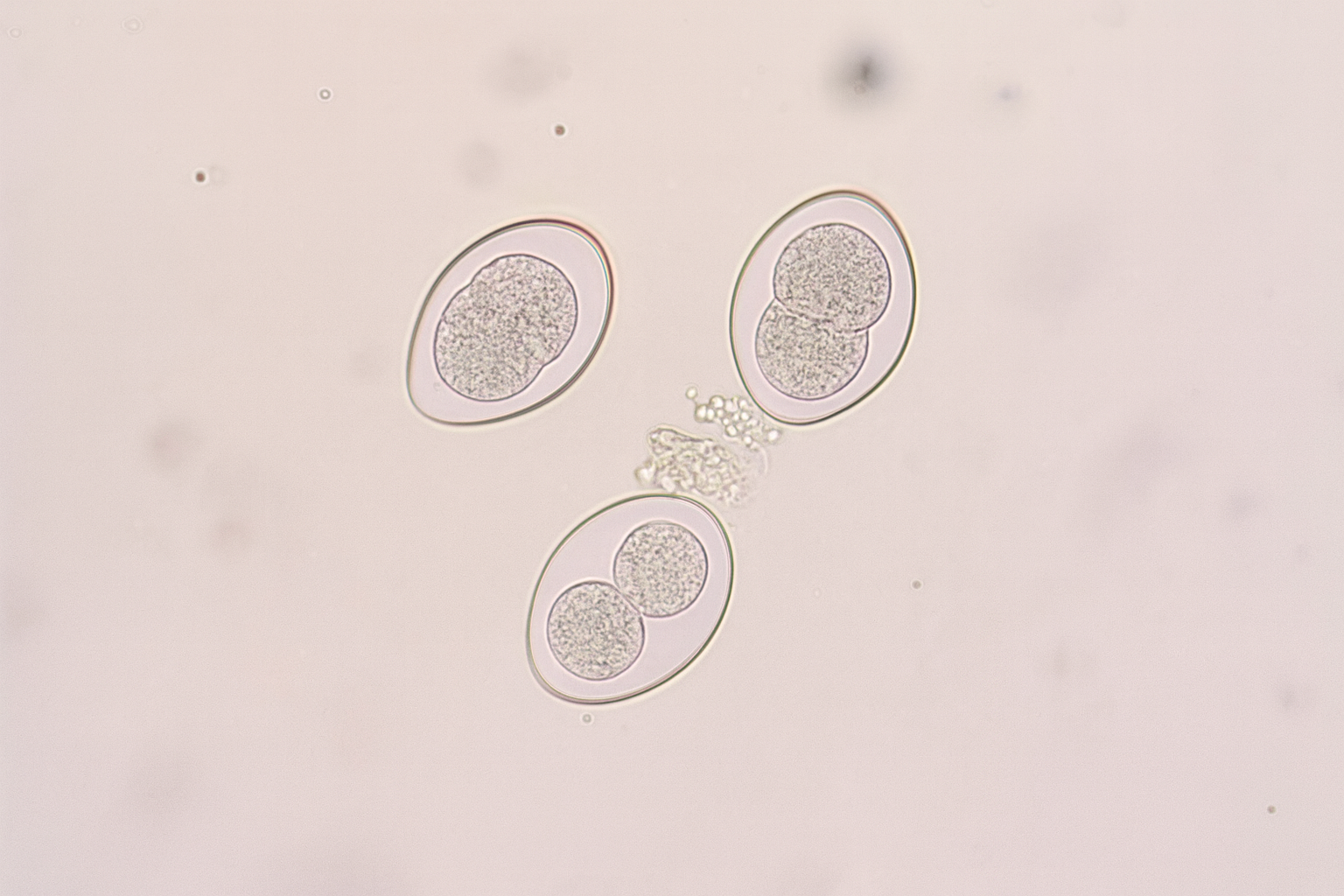Coccidia (plural: coccidiosis) are single-celled parasites that can cause short-term diarrhea, especially in young animals. The diarrhea usually resolves within a few weeks, but the eggs can remain in the environment for years and infect other animals.
Most coccidia have an intermediate host, in which the parasite causes inflammation in muscles, organs, or the brain. In the final host, intestinal symptoms are often observed.
Your cat can become infected with coccidia by ingesting the eggs or by eating raw meat from infected intermediate hosts. Unborn kittens and cats with a weakened immune system can become seriously ill from a coccidia infection. In the Netherlands, the three most well-known coccidia are Toxoplasma, Cryptosporidium, and Cystoisospora.
Toxoplasma
Toxoplasma is spread through the feces of cats. Cats are the definitive host of Toxoplasma. Infected cats are usually young and may occasionally have diarrhea. The cat sheds millions of eggs over a period of 2 to 3 weeks and then develops immunity. After infection, the cat is usually immune for life. Most cats do not get sick from Toxoplasma. In rare cases, the parasite can affect other organs and the intestines, causing symptoms such as breathing difficulties, fever, jaundice, abdominal pain, poor appetite, and eye inflammation.
Toxoplasma can, however, be transmitted to humans and other animals and can cause serious health problems. Therefore, maintain good hygiene for both yourself and your pet(s).
Cryptosporidium
Cryptosporidium is usually not dangerous for cats. Adult cats often do not get sick, while kittens may develop foul-smelling diarrhea. The diarrhea can last for days or weeks and may be accompanied by abdominal pain, vomiting, and fever.
The parasite does not require an intermediate host and is transmitted directly from animal to animal or from animal to human.
Cystoisospora
In cats under 4 months of age, Cystoisospora is the most commonly detected coccidia. Cats can become infected through contact with other cats or by eating raw meat.
Cystoisospora usually causes few symptoms, but in severe intestinal infections, symptoms such as diarrhea, fever, poor appetite, weight loss, dehydration, and in rare cases, death may occur. In such cases, other factors like worms, viruses, or dietary changes are likely to play a role as well.
Coccidiosis can usually be diagnosed through fecal testing. At Worm&Co, we routinely check for coccidia. If we find that your cat is infected with coccidia, we will provide you with a personalized treatment plan. In most cases, symptomatic treatment and hygiene measures are sufficient. Feel free to contact our team if you have any questions; we are happy to help.
To prevent coccidiosis, good hygiene is essential. Where possible, remove your cat’s feces. Cleaning with high pressure and steam can kill the oocysts (eggs of the coccidia). Finally, do not feed your cat raw meat or organs unless they have been heated above 70 °C or frozen below –12 °C.
